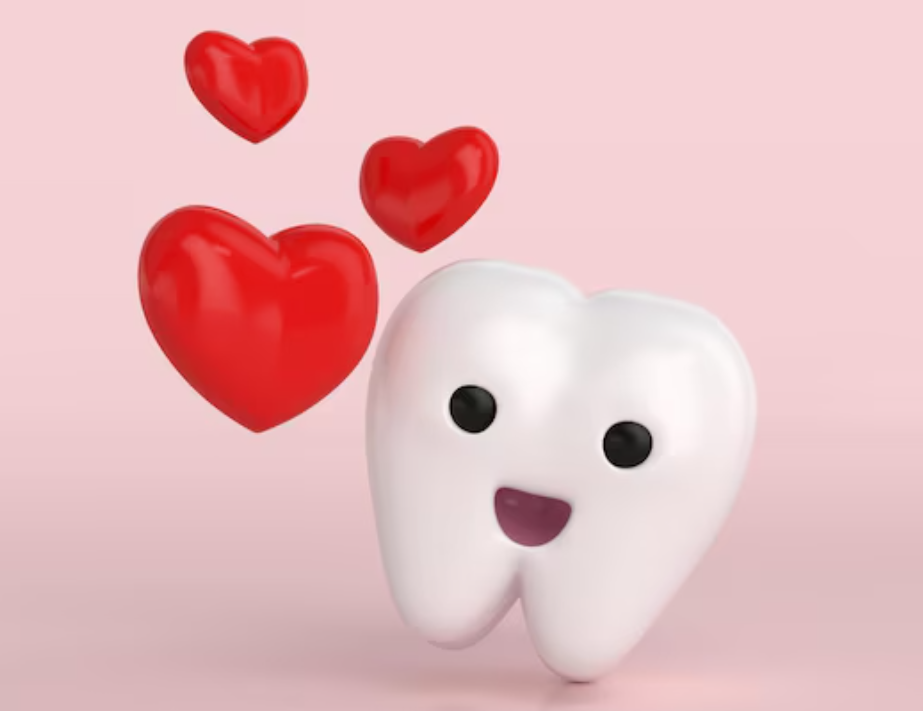
At first glance, it might seem strange that the condition of your teeth and gums could influence the health of your heart. However, research has increasingly shown that gum disease (periodontal disease) and cardiovascular disease are closely linked. Gum disease is an infection and inflammation of the tissues surrounding your teeth, which, if left untreated, can lead to tooth loss. But its effects don’t stop in your mouth; the inflammation and bacteria from gum disease can spread through the bloodstream, affecting other parts of your body—including your heart.
Here’s a look at some of the ways that poor oral health may contribute to heart disease:
Inflammation: When gums are inflamed due to periodontal disease, it can cause inflammation throughout the body. Chronic inflammation is a known risk factor for heart disease, as it can damage blood vessels and contribute to the development of artery-clogging plaque.
Bacteria in the Bloodstream: Bacteria from an infected gum line can enter the bloodstream and travel to other parts of the body. When these bacteria reach the heart, they may attach to damaged areas and cause further inflammation, which can lead to conditions such as endocarditis (an infection of the inner lining of the heart) or contribute to the buildup of plaque in the arteries.
Increased Risk Factors: Gum disease and heart disease share several common risk factors, including smoking, diabetes, and poor diet. This overlap means that if you’re at risk for gum disease, you may also be at higher risk for heart disease—and vice versa.
Who’s Most at Risk?
While good oral hygiene is important for everyone, certain groups may be at a higher risk of experiencing heart-related issues due to gum disease:
Individuals with a History of Gum Disease: If you’ve previously been diagnosed with gum disease, maintaining a strict oral hygiene routine is essential to prevent it from worsening or recurring.
Diabetic Patients: Diabetes increases the risk of both gum disease and heart disease, making it especially crucial for diabetic patients to stay on top of their oral health.
Older Adults: As we age, our immune system weakens, making it easier for infections to spread. Older adults are more susceptible to gum disease, which puts them at higher risk of cardiovascular issues if oral health is neglected.
Smokers: Smoking is a major risk factor for both gum disease and heart disease. Quitting smoking can significantly lower your risk of these and many other health issues.
Those with a Family History of Heart Disease: If heart disease runs in your family, it’s even more important to manage any risk factors, including maintaining excellent oral health.
How to Protect Both Your Heart and Your Smile
The good news is that taking care of your mouth can also help protect your heart.
Here are some key steps to take:
1. Maintain a Consistent Oral Hygiene Routine
Good oral hygiene is the foundation of a healthy mouth and heart. Brush your teeth twice a day, floss daily, and use an antibacterial mouthwash to help reduce bacteria and plaque buildup. This routine keeps your gums healthy, minimizing the chances of bacteria entering the bloodstream.
2. Schedule Regular Dental Check-Ups
Routine dental visits allow your dentist to detect any early signs of gum disease and other oral health issues before they become severe. Catching gum disease in its early stages makes it easier to treat and prevent it from affecting other parts of your body. We recommend a check-up every six months, or as advised by your dentist.
3. Eat a Heart-Healthy Diet
What’s good for your heart is also good for your mouth! A balanced diet rich in fruits, vegetables, whole grains, lean proteins, and low-fat dairy products can support both oral and heart health. Avoid excessive sugary and acidic foods, as these can increase your risk of tooth decay and gum disease.
4. Quit Smoking
Smoking is a major risk factor for both heart disease and gum disease. If you’re a smoker, quitting is one of the best things you can do for your overall health. There are numerous resources available to help you quit, and the positive impact on your heart and mouth health will be well worth the effort.
5. Monitor Any Health Conditions
If you have conditions such as diabetes or high blood pressure, work closely with your healthcare provider to manage them effectively. Controlling these conditions can help reduce your risk of both gum disease and heart disease, contributing to better long-term health.
Why Regular Dental Check-Ups Are Essential for Overall Health
Regular dental check-ups aren’t just about keeping your teeth clean—they’re a preventive measure that can protect your whole body. During routine visits, your dentist can identify signs of gum disease, tooth decay, and other oral health issues early on, helping to prevent the bacteria from spreading to your bloodstream. Additionally, your dentist can provide advice tailored to your specific needs, guiding you on the best oral hygiene practices and lifestyle habits for optimal health.
At Pure Bliss Dental Care, we’re committed to supporting both your oral health and overall well-being. Our experienced team understands the importance of keeping your gums healthy and is here to help you with preventive care, treatment, and education.
Book Your Dental Check-Up Today!
Taking care of your teeth is one of the best things you can do to protect your heart. By keeping up with regular dental visits and following a consistent oral hygiene routine, you can lower your risk of both gum disease and heart disease.
Don’t wait until an issue arises. Schedule a check-up today with Pure Bliss Dental Care and let us help you maintain a healthy mouth and a healthy heart. Contact us at 07 3341 0049 to book an appointment and start prioritizing your overall health today. Remember, taking care of your smile is more than just about looks—it’s about safeguarding your well-being.





